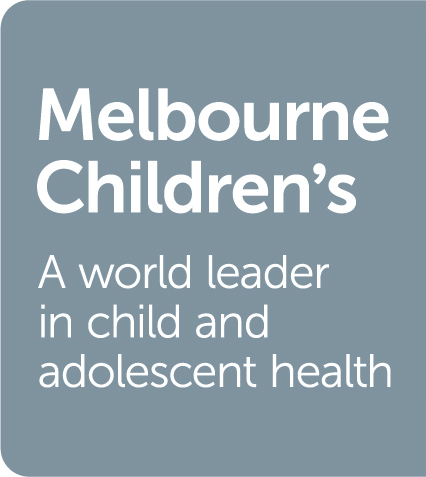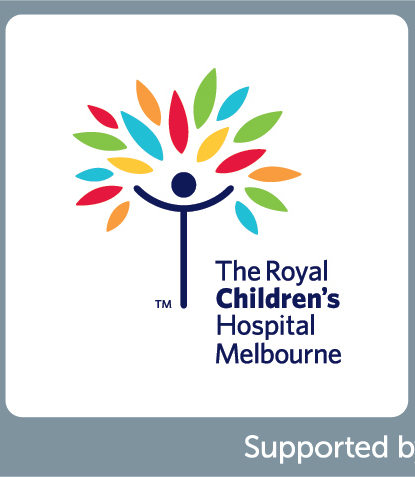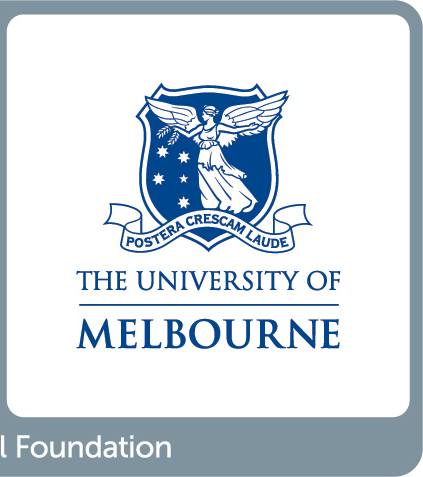Getting Approval
Before you can undertake your research there are certain institutional approvals you may need. This page covers all the different types of approval you may need and links you into more information on how to get these so you can start your research.
Overview
| Who needs it? | When do I need to do this? | Why do I need this? | |
|---|---|---|---|
|
|
|
|
|
Site specific authorisation |
|
|
|
|
|
|
|
|
|
|
|
|
|
|
|
|
Site specific authorisation |
|
|
|
Staff and students conducting research with or about people, their data, or tissue, must apply for ethics approval.
The definition of Human research is very broad and can include interviews/questionnaires with staff, accessing large clinical data sets from the EMR or archived human samples, or even just being observed by researchers.
Before you can commence your research with or about human participants you must obtain human research ethics approval. This is irrespective of how risky your research is, but there are different approval processes depending on the risks associated with your research.
The RCH Research Ethics & Governance office oversee ethics and governance approval of all research and can assist you with your application. Take some time to familiarise yourself with their website and all their excellent resources.
At the Melbourne Children’s you submit ethics (to cover your own or multiple Australian hospital sites) and governance application at the same time for your human research proposal.

1. |
Check out the ethics submission deadline, how to submit information and handy templates. |
2. |
Departmental & Ethics Research Platform (DERP) – is a campus based system that guides you through the application process to make sure you’re completing all the relevant steps and helps you assess the risk of your study. |
3. |
Complete a draft ethics application form and any other documents (consent information statements, scripts, advertisements, questionnaires), and depending on type of application identified in part 2, any additional governance documents such as sponsorship committee approval, research agreements, indemnities, supporting department declarations) based on your finalised protocol. |
4. |
Attend one of the ethics drop-in sessions or speak to the REG Office or your supervisor if you need any help or have any questions (get help and advice early!). This is particularly helpful is asking for a waiver of consent, opt out consent and/or complex projects. |
5. |
Get your application peer reviewed and amend the projects based on any feedback you get. |
6. |
Finalise your ethics application, obtain relevant sign off, check you have included everything you need in DERP and submit (in time for the ethics deadline if high-risk research). |
7. |
Answer any questions or rebuttals that you get back from the REG office or committee until you obtain a letter indicating ethics approval and governance authorisation. Once you have both you can commence your research! |
8. |
Once you have ethics approval and governance authorisation, please be sure to tell all parties involved in your research that you have approval. This may include your supporting departments like Clinical Trials Pharmacy or Medical Imaging, and the EMR Research team if your study is being built into EMR. |
9. |
If your project changes at any stage you must submit an amendment to the application to the REG Office and get approval of the amendment before you implement the changes |
10. |
A condition of ethics approval and governance authorisation is that you submit annual reports, and notify them of any relevant safety notifications, breaches or complaints. |
The MCRI Institutional Biosafety Committee (IBC) oversees compliance to The Gene Technology Act (2000) and the Gene Technology Regulations (2001) as well as assesses, approves, inspects and monitors research facilities to ensure that potential biological hazardous materials cause no harm to human, animal and environmental health.
If you are working with biohazards such as Genetically modified organisms (GMOs) or blood products you will need to approval from the IBC to ensure that any risks posed by your research are appropriately managed and contained. IBC approval only covers the GMO undertaken at the MCRI or RCH. If you are using GMOS at other sites you will need to complete their institutional processes.
What biosafety matters require approval or notification?
The IBC requires approval or notification for:
- Genetically modified organisms (GMO) and certification of physical containment facilities in which GMO dealings will be conducted
- Security Sensitive Biological Agents (SSBAs)
- Organisms in Risk Group 2, 3 or 4 in the Australia/New Zealand Standard 2243.3:2010 or procedures that may result in the isolation or enrichment of such organisms
- All human tissue or blood products
- High risk cell lines
- Material of biological origin that may be or contain a hazard to humans such as toxins, allergens or prions
- Quarantine materials in any of the above categories
Note: IBC responsibility does not extend to general laboratory risks and procedures involving the use of chemicals that are otherwise covered by Health and Safety Policies or Procedures.

1. |
Have a look at the approval process guideline and determine
|
2. |
Complete an IBC application form. |
3. |
Contact the IBC on 8341 6361 for information on meeting deadlines and how to apply. |
4. |
Undertake the relevant training |
All projects involving the care and use of live animals or animal tissue must have the approval of the Animal Ethics Committee (AEC) prior to commencement. This includes:
- tissues for class experiments
- behavioural studies
- wildlife census data collection
- the use of fish
- animals or tissue obtained from third parties.

1. |
Look at the MCRI AEC intranet site and familiarise yourself with the excellent SOPs and resources |
2. |
Check the AEC deadline date |
3. |
Complete and submit AE application form and complete and attach any relevant attachments (monitoring sheets, new SOPS etc) |
4. |
Undertake compulsory training |
5. |
Commence your research! |
6. |
Submit any amendments to your project for approval before you implement the amendment |
7. |
Submit annual or final reports. |
8. |
Report any adverse events or concerns |
Contracts, indemnities, insurance
Always contact the MCRI legal team before executing any contracts, agreements, etc. relating to your research.
The legal team will consult on any issue for any research, large or small. The most common contracts required for research are:
Material Transfer Agreements
Material transfer agreements (MTAs) should be used if you intend to supply or receive research materials (cell lines, samples, transgenic animals, chemicals or other proprietary physical materials) or data to/from an external academic, commercial or government organisation.
- MTA (MCRI Supplying) – use if you intend to supply material to a third party
- MTA (MCRI Receiving) – use if you intend to receive material from a third party
You will not need a Material Transfer Agreement if you have a Clinical Trial Research Agreement (CTRA) in place, as this Agreement covers
Confidentiality Agreements
If you intend to share MCRI confidential information with an external organisation and/or receive an external organisation’s confidential information, you should enter into a confidentiality agreement (otherwise known as a confidential disclosure agreement (CDA) or non-disclosure agreement (NDA)). Confidentiality agreements are particularly important if you are dealing with industry.
You can find the different confidentiality agreements set out by the MCRI here.
If you have already received a confidentiality agreement, please send it to the Commercialisation and Legal Office for review.
Research Agreements / Clinical Trial Research Agreements (CTRAs)
If you are collaborating on a research project with an external organisation(s), it is important to put a research collaboration agreement in place before commencing the project. Research collaboration agreements set out each party’s responsibilities in relation to the project, budget, and detail the process for ownership and management of any new intellectual property created.
Research collaboration agreements can require detailed negotiations and it is important that the Legal Office is involved in these negotiations. For more information on agreements please see here or contact the legal office
Contractor/services/consultancy Agreements
A contractor agreement must be used if you intend to engage an external organisation or individual to provide services to your research project or other work activity. These templates are drafted to suit MCRI receiving services and must not be used if MCRI is in fact providing services for a fee.
- Contractor/services/consultancy Agreements (Australia only)
- Contractor Agreement (foreign individual contractors only)
Researchers that wish to access the RCH EMR for their ethically approved research must hold a position with RCH. Researchers from MCRI, VCGS, University of Melbourne or other external organisations will need to follow one of these two processes:
- Students that will be with RCH for 12months or less, including placement, Honours and Scholarly Selective students, can request access via the RCH Student ICT Access Submission Process.
- All other researchers, including Masters and PhD students, will need to apply for an Honorary RCH Appointment.
If you need help with this process please reach out to Kaya Gardiner.
If you already have access to the RCH Electronic Medical Record (EMR) but you need help understanding if the EMR data is fit for your research purpose, the Centre for Health Analytics can help.
Please contact Health Analytics so they can work with you before you submit your Human Research Ethics application to confirm cohort size and the quality of the data elements required for your research question.
Health Analytics will treat these Pre-ethics Assessments of EMR Data for Research Purposes as a special type of data request and prepare a short report to be included in your HREC application.
Sponsorship
If your clinical trial does not have a commercial sponsor, and you would like the MCRI to act a Sponsor of a trial you need Sponsorship approval.
MCRI does not support individual members of staff to personally act as the sponsor of a clinical trial. Instead, the lead Investigator must apply to the MCRI Sponsorship Committee (SC) to request that MCRI take on the role of Sponsor.
The SC will assess the management, financing, safety, and overall integrity of their proposed trial using a risk based approach. Following review, the majority of Sponsorship responsibilities as dictated by ICH GCP are formally delegated to the lead Investigator, also known as the Sponsor-Investigator, a title that reflects the dual role of this position in the trial.
The MCRI sponsorship process applies to MCRI Investigator Initiated Trials and International trials which require a local Sponsor.
A MCRI led Clinical Trial will not be able to receive Ethics approval unless it has a Certificate of Sponsorship.

1. |
Look at the MCRI Launching Pad and familiarise yourself with the SOP and other resources. |
2. |
Check the date of the next Sponsorship Committee Meeting |
3. |
Complete the Risk Matrix and application form |
4. |
Send a current trial budget, evidence of source of funding, and the completed Risk Matrix and application form to [email protected] |
5. |
The application will be considered by the SC Chair. Trials of negligible risk will receive Sponsorship Approval immediately and skip to step 7 |
6. |
If the trial is considered of higher than negligible risk, you will need to attend the next Sponsorship Committee Meeting to present and answer questions about your trial. |
7. |
Respond to any queries or amendment requests and resubmit your application. |
8. |
Submit your Certificate of Sponsorship to the Ethics Committee |
9. |
Submit your updated Protocol, risk assessment, and trial budget at review intervals as determined by the SC at the time of approval. |
10. |
Update the risk assessment and notify the SC regarding any event that significantly alters the risk profile of the trial eg. Safety events, significant protocol deviations, failed recruitment targets, etc. |
Therapeutic Goods Administration - Drug/Device Trials only
A Clinical Trial Notification (CTN) is required if the study is using a drug or device that meets any of the following criteria:
- Not entered on the Australian Register of Therapeutic Goods, including any new formulation of an existing product or any new route of administration, or in the case of an existing medical device, new technology, new material or a new treatment modality; or
- Use of a product beyond the conditions of its marketing approval, including new indications extending the use of a medicine to a new population group and the extension of doses or duration of treatments outside the approved range.
If you need to lodge a CTN, please complete the CTN Application Form and forward to the MCTC CTN Submission Officer, who will make the submission on your behalf.
For more information, please see CRDO’s SOP on Clinical Trial Registration.
Radiation Safety
If your study involved diagnostic or therapeutic ionising radiation, whether or not it is a part of routine clinical care, you must receive a safety report from a Medical Physicist prior to seeking Supporting Department sign off from medical imaging. Medical procedures that involve ionising radiation are:
- Radiology: e.g.: CT scans, plain X-rays, EOS images, fluoroscopy, angiography
- Cath lab: all procedures
- Nuclear medicine: all scans, including Positron Emission Tomography (PET) and Gated blood pool scans
- Endocrinology: DEXA scans
- Radiotherapy (please contact the RSO before proceeding)
Please see here for more information on what you need to do if your research involves ionising radiation.
MCRI have implemented a Change Advisory Body (CAB) to ensure that appropriate governance and information security measures are considered when dealing with MCRI data. For more information about the role of CAB, please click here.
DataConnect is a resource provided by the MCRI Data Office, connecting you with tools, resources and support to make your journey with data easier, more secure, and more productive at MCRI. Please click here for information, guidance and support on CAB.




